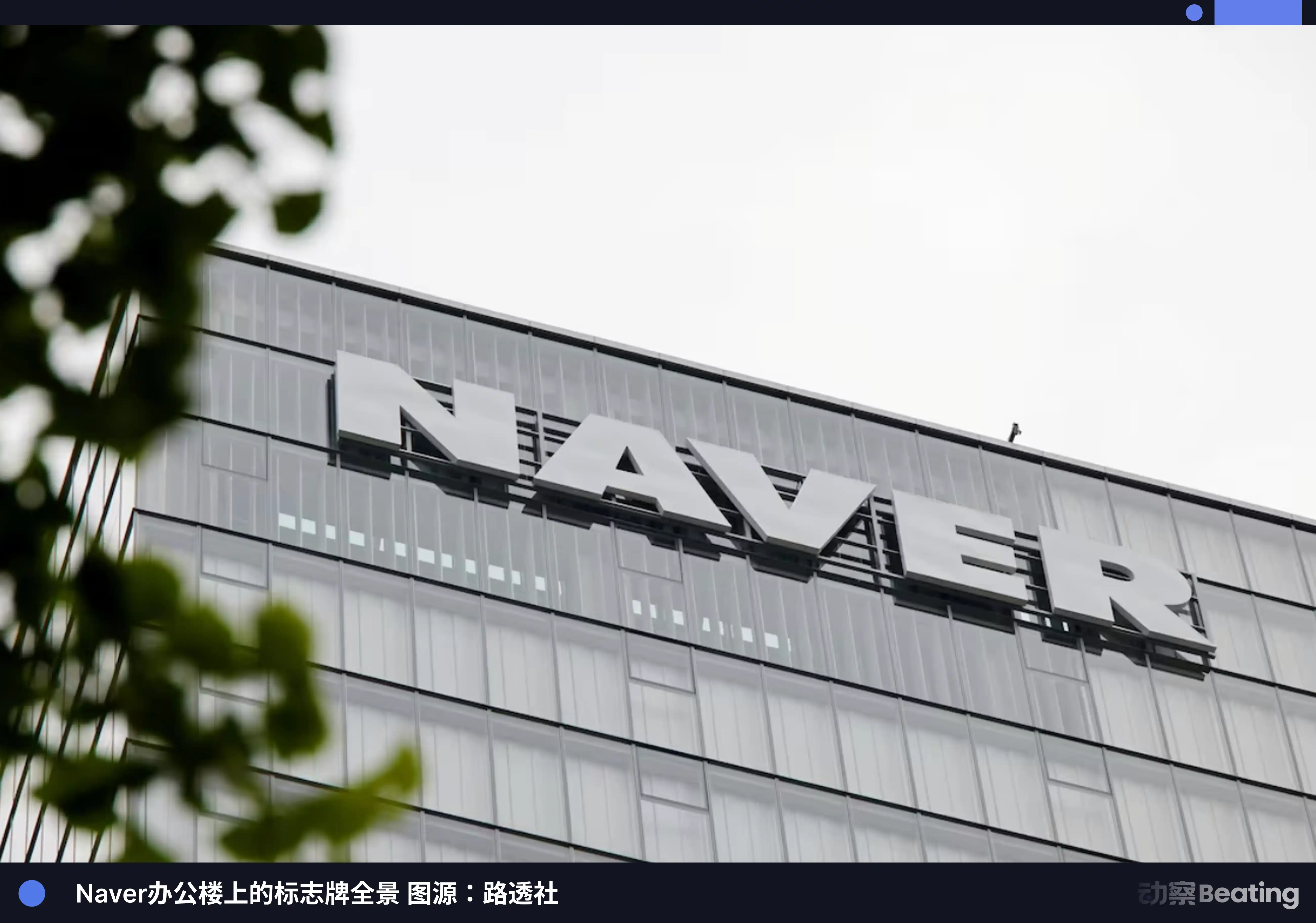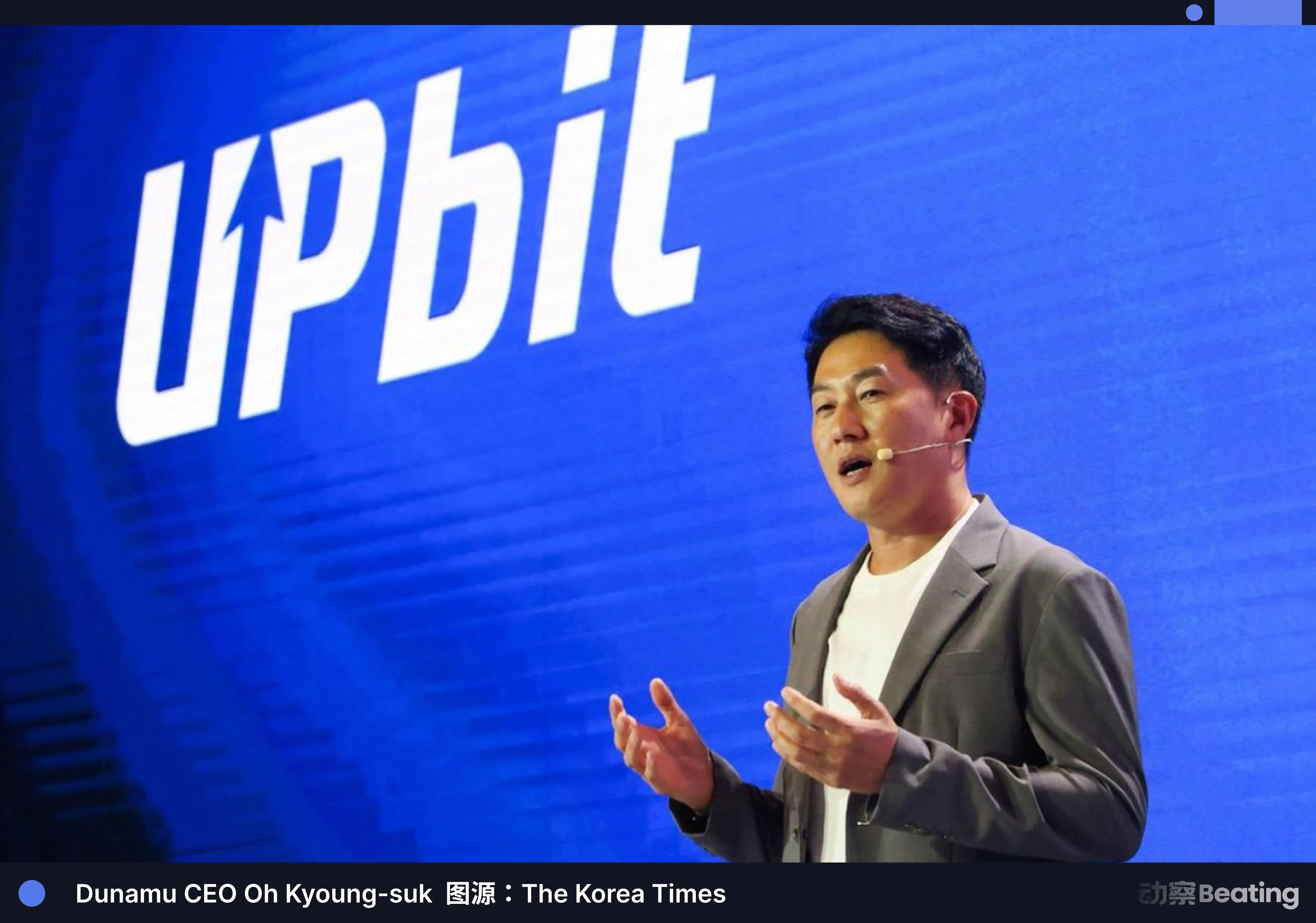In-depth analysis of Upbit's US IPO: More profitable than Coinbase, yet valued at only 1/7.
- 核心观点:Upbit遭黑客攻击影响有限,与Naver合并价值凸显。
- 关键要素:
- 被盗金额仅占Upbit两周利润。
- 与Naver合并打造支付+交易闭环。
- 估值103亿美元存在巨大折价。
- 市场影响:推动加密交易平台合规化与金融整合。
- 时效性标注:中期影响
Original author: Lin Wanwan, Beating
On November 27, 2025, a "minor earthquake" occurred in the South Korean cryptocurrency circle.
Upbit, the undisputed leader in the South Korean market, suffered a hacker attack, resulting in the loss of 54 billion won (approximately US$36 million). Upbit later revised its statement, claiming the loss was 44.5 billion won from its Solana network assets.
But the market's panic was quickly digested.
Based on Upbit's quarterly net profit of approximately $200 million, Upbit could recoup the stolen amount in just two weeks.
Just three days before the theft, Upbit's parent company, Dunamu, announced a "merger of the century" with South Korean internet giant Naver Financial. The merged company is preparing for an IPO on the US stock market, with a current valuation of $10.3 billion.
Behind this merger are not only old and new South Korean chaebols, but also a South Korean super financial group that went public on the US stock market.
In this world, many seemingly isolated "black swan" events, when viewed in context, are often just a speck of dust falling from a giant "gray rhino."
Theft and Merger
First, we must define the nature of the "theft".
$36 million is a lot of money. But when it comes to trading platforms, we need to learn to do the math.
According to Dunamu, Upbit's parent company, which approved its 2024 financial report at its annual shareholders' meeting, the company's operating profit for the year was 1.18 trillion won (approximately US$800-900 million), and net profit was 983.8 billion won (approximately US$700 million), representing a year-on-year increase of 22.2%.
Clearly, the amount stolen is nothing compared to its massive balance sheet, amounting to a mere mosquito bite.
Currently, South Korea's Financial Services Agency has preliminarily identified the North Korean Lazarus organization as the mastermind behind the attack. Official assessments suggest that the attack replicated a "privilege hijacking" tactic from six years ago, with hackers likely stealing or impersonating administrator accounts to transfer funds, rather than directly infiltrating the servers. South Korean regulatory authorities have urgently dispatched personnel to Upbit's headquarters for an on-site investigation.
But it was precisely this mosquito bite that exposed a deeper problem: Upbit had become too big. Big enough that its cash flow was enough to make hackers drool, big enough that its very existence was enough to make regulators wary.
This is why the "merger of the century" three days ago was so crucial. If the theft demonstrated Upbit's financial strength, then the merger exposed its anxiety and ambition.
According to publicly available information, Naver Financial (Naver's financial arm) will engage in a full equity swap with Dunamu (Upbit's parent company).
Here's a truly counterintuitive data comparison. In terms of operating profit, Upbit has 1.18 trillion won; Naver Financial only has 103.5 billion won.
In other words, Upbit earns 10 times more money than the other party.

With such a huge difference in profits, why merge?
Logically, this should have been a "downward attack" or "acquisition" of Naver Financial by Upbit. But in the world of capital, the logic is never that whoever has more money is the boss.
Therefore, this merger is more of a collaboration between South Korean political interest groups. Upbit has pledged allegiance to the "new political forces" behind Naver, representing the internet and emerging industries, in exchange for Naver's powerful political protection. Only through this structural reorganization, by using Naver's shell or leveraging Naver's endorsement, can Upbit bypass South Korean regulations and directly access the US Nasdaq.
For more details regarding Upbit's IPO, we had an exclusive interview with Jason Huang, founder of NDV USD Fund, an investor with a long history of in-depth research and understanding of the South Korean cryptocurrency trading ecosystem.
NDV is a compliant hedge fund focused on "digital asset stocks + derivatives," known for its stringent risk control measures including independent custody and auditing. In terms of past performance, NDV's first fund, Fund I, achieved remarkable results, reaping a liquidation return of 275.5% within two years.
The following is our interview.
Interview with Upbit on its IPO
Dynamic Observation: When does Upbit expect to list in the US?
Jason: The merger between Upbit's parent company Dunamu and Naver Financial is likely the largest merger in Crypto history.
Following the merger, the typical preparation period for a US stock market listing is expected to take 8-9 months. If all goes smoothly, the listing application is ideally expected to be submitted in the second half of 2026.
From what I understand, the world's largest and top-tier investment banks are vying to be their underwriters, and these are among the most profitable projects. For example, Kraken only turned a profit in the third quarter of this year, yet its valuation has already reached $20 billion.
Dynamic Observation: What is the status of Upbit's compliance and IPO preparation?
Jason: Upbit is a very mature and transparent company, essentially a "quasi-public company." It is currently audited by PwC Korea and is one of only five compliant trading platforms in South Korea. Therefore, its level of compliance is comparable to that of Coinbase in its early days.
The company has no preferred stock, only common stock, and its information disclosure is transparent. Preparations for the IPO are essentially complete; after the merger, all that remains is to await regulatory approval.
Dynamic Observation: Upbit is currently valued at $10.3 billion. What do you think of this valuation?
Jason: This is a project that is clearly undervalued in the primary market.
Compared to the US trading platform Coinbase, which currently has a market capitalization of approximately $70 billion and a price-to-earnings ratio (P/E) of around 30-40, Robinhood's P/E ratio even reaches 60-70.
In comparison, Upbit's valuation in the primary market is only around $10 billion. Even considering the "Korean discount," Upbit remains a very attractive undervalued asset. Top investment bankers see it as a multi-billion dollar opportunity.
The South Korean stock market has long suffered from the so-called "Korea Discount," which, to explain, is due to factors such as geopolitical risks and the governance structure of conglomerates, resulting in South Korean companies being valued lower than their global counterparts.
But if Upbit is merely a profitable trading platform, its story has a ceiling of becoming the next Coinbase. What's truly valuable is its recent acquisition.
Upbit's parent company, Dunamu, swapped shares with Naver Financial at a ratio of approximately 1:2.5. In terms of market capitalization, Dunamu holds 3% and Naver Financial holds 1%. Following the merger, the CEO of Upbit's parent company remains the largest shareholder in the new single entity.
Dynamic Observation: What does this merger with Naver Financial mean?
Jason: Let's use an analogy.
What is Naver? It's the Korean version of Google combined with Amazon.
What is Naver Financial? It's the Korean equivalent of Alipay or Google Pay.
Therefore, this merger will create an unprecedented financial giant. We can think of it as a trinity of "Coinbase (trading) + Google Pay (payments) + Circle (stablecoin)".
Dynamic Observation: Why mention Circle?
This is because the new South Korean government is vigorously promoting stablecoins based on the Korean won. Given Circle's business model of paying huge sums to Coinbase annually as "protection fees," this process will inevitably involve Upbit.
Currently, no company in the market possesses both a "traditional payment license" and a "crypto trading license," and both are nationally recognized applications. The valuation logic of this closed-loop ecosystem is no longer a simple PE ratio, but rather the multiplier effect of the platform economy, making it a lucrative business.
If Coinbase is a "trading platform + stablecoin partnership", and Robinhood is a "brokerage firm + crypto gateway", then if Upbit completes the merger and issues a Korean won stablecoin in the future, it will be more like a closed loop of "payment infrastructure + trading platform + native stablecoin".
This is why investors now believe that a valuation of $10.3 billion is "picking up money".

Observer: You just mentioned Coinbase. Are Upbit's operating costs lower than Coinbase's?
Jason: Yes, Upbit's operating costs are only one-tenth of Coinbase's.
Observation: Why is there such a large cost difference?
Jason: Coinbase operates in the US to compete globally with Robinhood, Binance, and Kraken. Therefore, it incurs high US manpower and compliance costs, and continues to burn cash in this competitive environment.
Upbit operates in the South Korean market, where competition has largely been eliminated. As the world's second-largest spot trading platform after Binance, Upbit enjoys an absolute monopoly.
In economics, this is called "excess rent from natural monopolies," where almost every additional unit of revenue can be directly converted into net profit.
This creates a huge "scissors gap": a giant with a profit margin far exceeding Coinbase's and a monopolistic position has a valuation of only one-seventh of Coinbase's.
Therefore, for capital, this obvious value mismatch is an alluring prey. They are betting on one thing: to fill this huge valuation gap by listing in the US.
Coinbase, based in the US global market, faces continuous competition from rivals such as Kraken and Robinhood. In contrast, the South Korean market is largely closed out, with Upbit holding a monopoly, allowing every bit of new revenue to be converted into profit more efficiently.
Dynamic Observation: If Upbit's valuation is so undervalued, why would anyone want to sell their primary stake?
Jason: Koreans believe that the entire listing cycle is not entirely under their control. Some people are worried that the listing time will be delayed until the bear market, and some people hope to cash out at this stage.
Personally, I believe that even in a bear market, a valuation of $10.3 billion still offers excellent value for money.
Dongcha: Many media outlets have reported that Masayoshi Son was also involved in driving this acquisition?
Jason: That's inaccurate. Masayoshi Son only holds shares in Naver's parent company. He wasn't involved in the merger of its subsidiary, Naver Financial. It's like the recent reports about Jack Ma buying Ethereum; he wasn't, he was just a shareholder, and he probably didn't even know he'd bought Ethereum. Similarly, Masayoshi Son himself probably didn't even know he'd orchestrated South Korea's largest merger, haha.
Dynamic Observer: Finally, let's talk about our views on the cryptocurrency market. What are your thoughts on the macroeconomic environment next year?
Jason: We are optimistic about next year. In an interview a few months ago, we predicted a 30%-50% correction within six months, and that has now largely happened. Retail investors who were going to get out have already done so, and leverage has been largely cleared out.
As long as the US remains in an environment of interest rate cuts next year, risk assets are unlikely to fall, and the market will likely see a good performance.
end
Let's go back to the beginning.
While ordinary retail investors were lamenting Upbit's loss of $35 million, real investors were calculating stock-for-stock ratios and planning the Nasdaq bell-ringing ceremony.
This was a power transition in South Korean business history.
The merger with Naver is a testament to this upgrade in governance structure. Upbit is shedding the traces of its early, unregulated growth. In the future, Upbit will no longer be just a place for cryptocurrency trading, but a comprehensive financial technology group integrating payments, trading, and stablecoins.
This is not a power game of who controls whom, but a strategic choice made to adapt to the global trend of crypto regulation.
Upbit is becoming a prime example of what happens outside the U.S. crypto industry: cryptocurrency exchanges, regardless of country, are all heading in the same direction, moving from the gray area towards the beginning of political cooperation.



